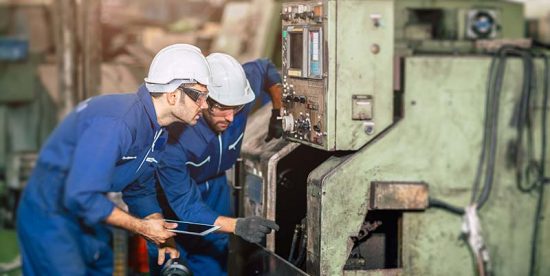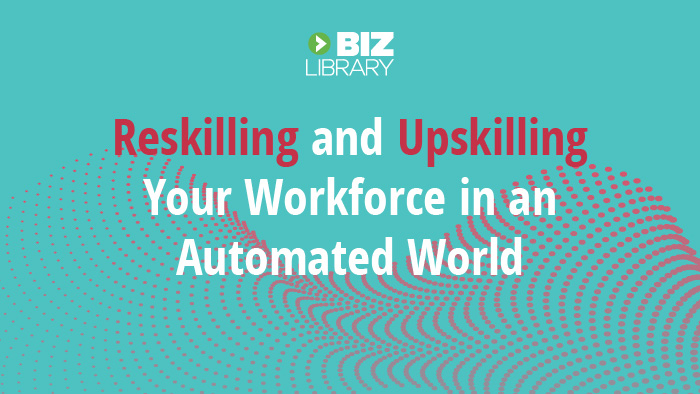- Understanding essential skills for maintenance professionals begins with understanding common team structures, from maintenance directors owning goals and budgets to the technicians responsible for the day-to-day activities.
- Modern facilities are increasingly reliant on technology-based solutions to streamline maintenance, repair, and operational (MRO) activities. These technologies have vastly changed modern processes, tools, policies and more, outlined below.
- First and foremost, technical expertise remains a mandatory skill for any maintenance professional. This could include all of core operating principles, safety requirements & technical specifications specific to each role.
- Often forgotten soft skills are just as essential to create a well-rounded, effective modern maintenance professional. Soft skills can include effective interpersonal communication skills, full-facility collaboration, time management and adaptability & ability to cope with stress.
Steady transformations in technology have disrupted the way companies organize their maintenance departments. In a modern facility setup, the roles of maintenance professionals supersede corrective measures on physical assets. Maintenance teams are responsible for facilitating workplace safety, security, and comfort.
Team Breakdown
Maintenance departments are typically headed by maintenance directors who are responsible for establishing goals and preparing departmental budgets.
The directors work with maintenance managers who control budgets, devise robust strategies, and manage inventories.
Supervisors create schedules, supervise operations, and recruit and train technicians.
The technicians are solely responsible for performing day-to-day maintenance activities.
Important Skills for Maintenance Professionals
Management of modern facilities relies heavily on technology-based solutions in a move to streamline maintenance, repair, and operational (MRO) activities across facilities. These solutions have introduced new tools, operational policies, and changes to job roles. As a result, maintenance professionals require hard and soft skills to facilitate efficient, timely, and cost-effective delivery of services.
Check out our blog on why training for blue-collar employees is important.
Below are some of the essential skills that modern, all-round maintenance professionals should have.
1. Technical Expertise
Maintenance employees are expected to have sufficient knowledge of basic operating principles, safety requirements, and technical specifications. Having this specific technical expertise allows for employees to effectively inspect, troubleshoot, and rectify issues that may arise within the workday.
Given the integration of technology into maintenance roles, it’s becoming inevitable for professionals to gain strong computer skills as well. Modern facilities are equipped with multiple condition monitoring sensors, complex communication infrastructure, and analytical dashboards and databases.
To fully understand and operate these solutions requires a complex understanding of computer applications. Developing these skills helps expedite decision-making processes, facilitate proactive maintenance strategies, and improve collaborations between levels within the department.
2. Interpersonal Skills
Maintenance employees interact physically and virtually with other departments, customers, and suppliers daily and need to be able to disseminate information clearly and concisely while maintaining good relationships. Being precise and timely with communication creates a significant difference that determines the success of maintenance operations within a facility.
Collaboration between senior and junior staff depends on how well the different levels relate. Good interpersonal skills will make it easy for junior workers to report issues, receive feedback, and negotiate better working conditions.
Maintenance teams also keep records of maintenance activities, which culminate in monthly or annual reports. Employees will need to be able to summarize this information into simple and comprehensible data for use by non-technical staff and stakeholders.
3. Problem Solving and Analytical Skills
These teams generate diverse data sets used by professionals to predict failure and evaluate the health of their machines. This includes data collected by sensors and practical experiences to make timely decisions. Maintenance teams work within tight schedules to perform corrective or preventive activities on equipment.
It’s essential that employees can sift through the provided data and information, think critically about it, and make rational judgements to solve problems. They need to interpret useful data, evaluate available evidence, suggest multiple solutions, and prioritize and implement the most appropriate solution as quickly as possible.
4. Adaptability
Facilities are continuously changing with the adoption of cutting-edge technology. Old processes and equipment get replaced with eco-friendly and sustainable options, and while these solutions improve the efficiency of systems, they tend to induce complexities within the maintenance department. As these changes get implemented, the scope of maintenance activities change.
Employees are required to embrace newer technologies and respond quickly to changes in routines and working tools. They need to be teachable, swift in grasping new ideas, and flexible enough to enroll in continuous development programs while maintaining productivity.
5. Time Management Skills
Maintenance teams work within restricted timelines and in controlled environments, therefore, employees must execute their job roles accurately to avoid rework and maintain productivity. Given the complexity of facilities, multiple maintenance operations need to be performed at any given time.
Workers must systematically prioritize scheduled activities and allocate reasonable time for each while being conversant with the use of tools such as Computerized Maintenance Management Systems (CMMS). These programs assist in planning and scheduling maintenance. CMMS eliminate inefficiencies that cause a pile-up of work orders, poor quality work, and missed deadlines.
6. Teamwork and Collaboration
Great things happen when teams come together. Results achieved by a team of multi-skilled individuals exceed those achieved by independent players. By working as a team, maintenance employees can make good decisions and complement the strengths of each other. That way, the maximum value of each employee is tapped and utilized to achieve goals established by the department.
Every employee needs to accommodate the views and opinions of other team members, be teachable, and be capable of mentoring colleagues based on their strengths. They should be able to utilize any communication tool that has been provided by the company to enhance vertical and horizontal collaboration.
7. Ability to Cope with Stress
Let’s face it, not all maintenance activities are planned. In some cases, emergency breakdowns occur. During these situations, there's an apparent spike in maintenance activities that cause fatigue and stress. Employees that are not scheduled may be recalled to supplement on-duty staff in restoring assets to good working condition.
Such situations induce emotional and physical stress on employees and by extension affecting their productivity. Those engaged in the maintenance of facilities need to develop resilience skills to help them manage, cope with, and control such unprecedented situations.
As organizations strive to revolutionize systems through smart technology, maintenance operations keep changing by the day. Professionals require continuous skills training in emerging technology trends for them to maintain modern assets.
Organizations that inculcate and develop the above skills enhance the productivity and competitiveness of their maintenance teams.
Author: Bryan Christiansen
Bryan Christiansen is the founder and CEO of Limble CMMS. Limble is a modern, easy-to-use mobile CMMS software that takes the stress and chaos out of maintenance by helping managers organize, automate, and streamline their maintenance operations.

